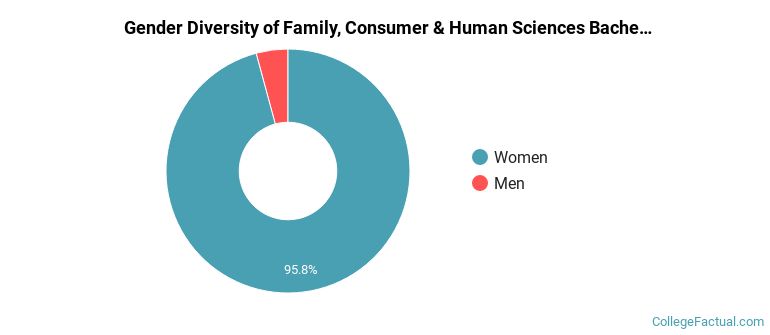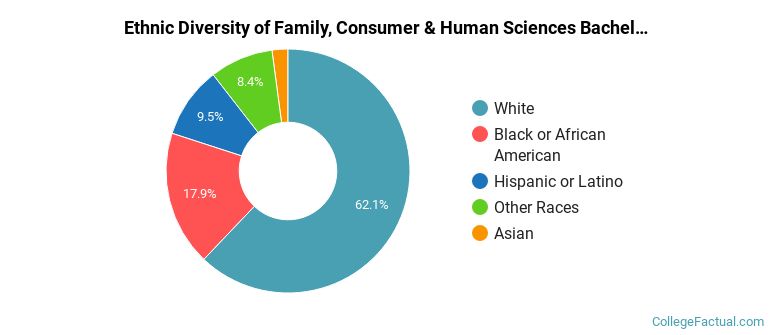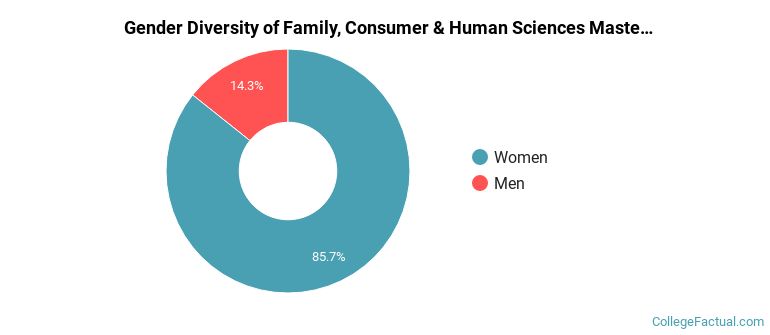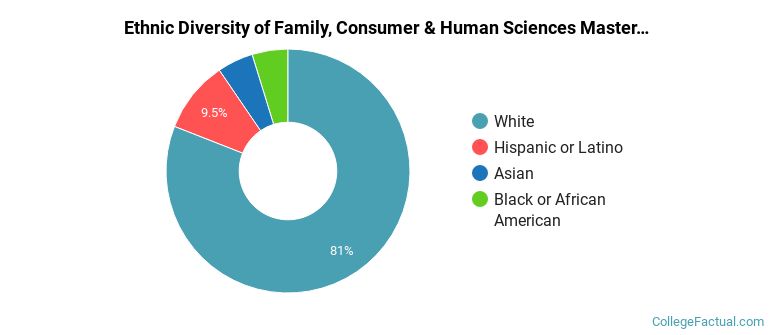 by our College Data Analytics Team
by our College Data Analytics TeamGo directly to any of the following sections:
The bachelor's program at ECU was ranked #87 on College Factual's Best Schools for family, consumer & human sciences list. It is also ranked #2 in North Carolina.
During the 2021-2022 academic year, East Carolina University handed out 95 bachelor's degrees in family, consumer & human sciences. This is a decrease of 30% over the previous year when 135 degrees were handed out.
In 2022, 15 students received their master’s degree in family, consumer & human sciences from ECU. This makes it the #66 most popular school for family, consumer & human sciences master’s degree candidates in the country.
During the 2022-2023 academic year, part-time undergraduate students at ECU paid an average of $864 per credit hour if they came to the school from out-of-state. In-state students paid a discounted rate of $185 per credit hour. The following table shows the average full-time tuition and fees for undergraduates.
| In State | Out of State | |
|---|---|---|
| Tuition | $4,452 | $20,729 |
| Fees | $2,909 | $2,909 |
| Books and Supplies | $1,794 | $1,794 |
| On Campus Room and Board | $11,000 | $11,000 |
| On Campus Other Expenses | $4,176 | $4,176 |
Learn more about ECU tuition and fees.
During the 2021-2022 academic year, 95 family, consumer & human sciences majors earned their bachelor's degree from ECU. Of these graduates, 4% were men and 96% were women.

The majority of bachelor's degree recipients in this major at ECU are white. In the most recent graduating class for which data is available, 62% of students fell into this category.
The following table and chart show the ethnic background for students who recently graduated from East Carolina University with a bachelor's in family, consumer & human sciences.

| Ethnic Background | Number of Students |
|---|---|
| Asian | 2 |
| Black or African American | 17 |
| Hispanic or Latino | 9 |
| White | 59 |
| Non-Resident Aliens | 0 |
| Other Races | 8 |
Looking for online learning options? Good news, you can take online classes in the family, consumer & human sciences bachelor’s degree program at ECU. To see if the school offers distance learning options in other areas, visit the ECU Online Learning page.
For the most recent academic year available, 14% of family, consumer & human sciences master's degrees went to men and 86% went to women.

The majority of master's degree recipients in this major at ECU are white. In the most recent graduating class for which data is available, 81% of students fell into this category.
The following table and chart show the ethnic background for students who recently graduated from East Carolina University with a master's in family, consumer & human sciences.

| Ethnic Background | Number of Students |
|---|---|
| Asian | 1 |
| Black or African American | 1 |
| Hispanic or Latino | 2 |
| White | 17 |
| Non-Resident Aliens | 0 |
| Other Races | 0 |
Take a look at the following statistics related to the make-up of the family, consumer & human sciences majors at East Carolina University.
Family, Consumer & Human Sciences students may decide to major in one of the following focus areas. Individual majors may not be available for all degree levels.
| Major | Annual Graduates |
|---|---|
| Human Development & Family Studies | 68 |
| Textile & Apparel Studies | 36 |
| Food, Nutrition & Related Services | 12 |
| Related Major | Annual Graduates |
|---|---|
| Social Sciences | 260 |
| Communication & Journalism | 255 |
| Liberal Arts / Sciences & Humanities | 189 |
| English Language & Literature | 95 |
| History | 39 |
More about our data sources and methodologies.